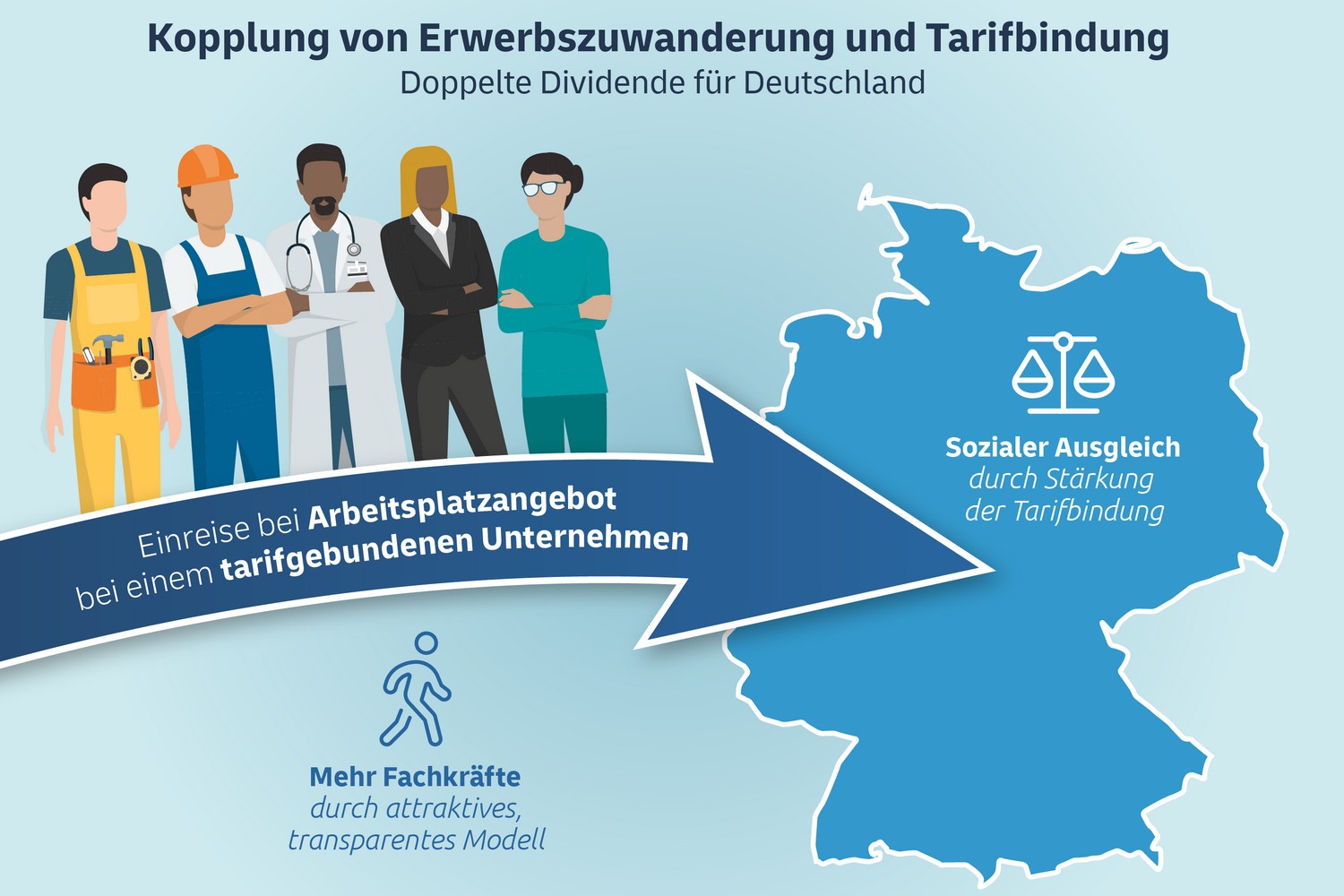Due to demographic developments resulting in a shrinking pool of domestic workers, the German labor market will be facing significant shortages of skilled and unskilled workers. Increased labor migration, particularly from non-EU countries, will be a crucial factor in stabilizing the country’s labor force potential. However, the generous immigration offers for skilled workers from outside Europe have so far received little response.
In a new policy brief, experts from IZA in Bonn, Berlin and the international network suggest a significant simplification of immigration requirements for third-country nationals seeking to work in Germany. This proposal links the issuance of a temporary work permit for this target group to a job or training offer in a company that is bound by collective bargaining agreements. This linkage provides important incentives for strengthening the German collective bargaining system and the country’s model of social partnership – a key pillar of the social market economy.
This proposal would provide an additional incentive for precisely those companies that should see little downside in joining an employer association: highly productive and innovative firms that are expanding, seeking employees, and offering higher wages. The changing dynamics of employer associations resulting from the accession of these companies can also have positive effects on innovation and growth.
By linking simplified immigration to collective bargaining, employees can directly benefit from the growth dividend resulting from increased labor and skilled worker immigration. Minimum standards in terms of wages and working conditions also help prevent the risk of labor market segregation, where certain jobs are only or predominantly filled by immigrants at low wages and precarious working conditions.
The IZA team’s proposal, published in the IZA Standpunkte series (in German) and covered in Süddeutsche Zeitung, aims to contribute to labor immigration and fair participation in the labor market.
